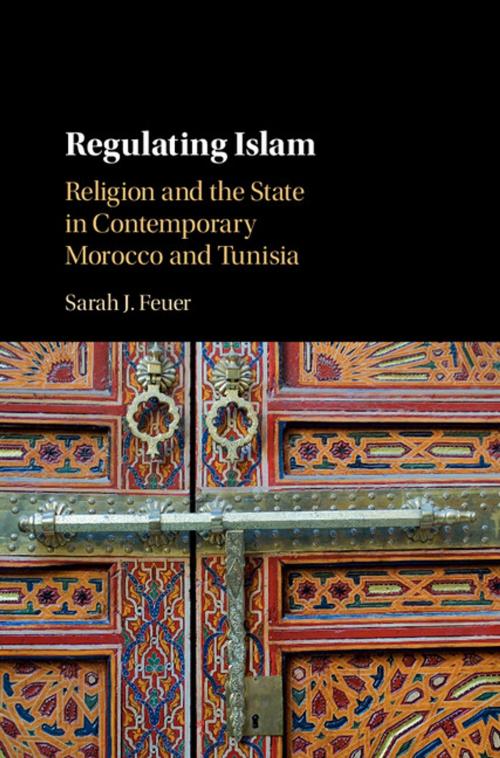Regulating Islam
Religion and the State in Contemporary Morocco and Tunisia
Nonfiction, Social & Cultural Studies, Political Science, International, History| Author: | Sarah J. Feuer | ISBN: | 9781108349765 |
| Publisher: | Cambridge University Press | Publication: | December 28, 2017 |
| Imprint: | Cambridge University Press | Language: | English |
| Author: | Sarah J. Feuer |
| ISBN: | 9781108349765 |
| Publisher: | Cambridge University Press |
| Publication: | December 28, 2017 |
| Imprint: | Cambridge University Press |
| Language: | English |
Many countries in the Arab world have incorporated Islam into their state- and nation-building projects, naming it the 'religion of the state'. Regulating Islam offers an empirically rich account of how and why two contemporary Arab states, Morocco and Tunisia, have sought to regulate religious institutions and discourse. Drawing on a range of previously unexamined sources, Sarah J. Feuer traces and analyzes the efforts of Moroccan and Tunisian policymakers to regulate Islamic education as part of the respective regimes' broader survival strategies since their independence from French rule in 1956. Out of the comparative case study emerges a compelling theory to account for the complexities of religion-state dynamics across the Arab world today, highlighting the combined effect of ideological, political, and institutional factors on religious regulation in North Africa and the Middle East. The book makes an important and timely contribution to the on-going scholarly and policy debates concerning religion, politics, and authoritarian governance in the post-uprisings Arab landscape.
Many countries in the Arab world have incorporated Islam into their state- and nation-building projects, naming it the 'religion of the state'. Regulating Islam offers an empirically rich account of how and why two contemporary Arab states, Morocco and Tunisia, have sought to regulate religious institutions and discourse. Drawing on a range of previously unexamined sources, Sarah J. Feuer traces and analyzes the efforts of Moroccan and Tunisian policymakers to regulate Islamic education as part of the respective regimes' broader survival strategies since their independence from French rule in 1956. Out of the comparative case study emerges a compelling theory to account for the complexities of religion-state dynamics across the Arab world today, highlighting the combined effect of ideological, political, and institutional factors on religious regulation in North Africa and the Middle East. The book makes an important and timely contribution to the on-going scholarly and policy debates concerning religion, politics, and authoritarian governance in the post-uprisings Arab landscape.















